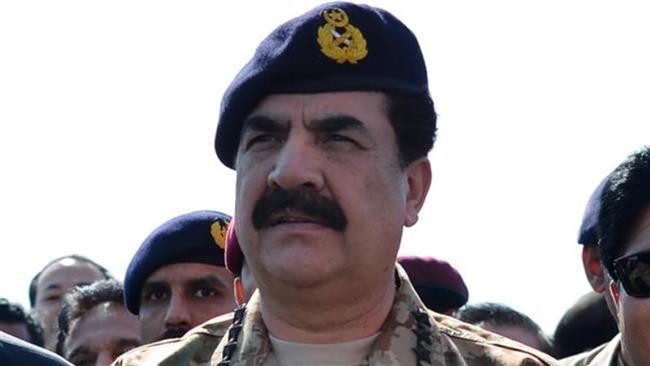TEHRAN, May 10, YJC - The mysterious manner by which Pakistan's former military chief Raheel Sharif has been made commander of a Saudi-led alliance remains a matter of controversy in the country, a political expert says.

TEHRAN, Young Journalists Club (YJC) - Bruce Riedel, an American expert on US security, South Asia, and counter-terrorism, wrote in an article published on dailybeast.com on Wednesday that uncertainty about Sharif involved controversy inside Pakistan about whether the former army chief should take the command of the Riyadh-based military coalition at all.
"For months this year, mystery and confusion shrouded General Raheel Sharif, Pakistan’s retired army chief. Would he or would he not be the supreme commander" of the Saudi-led alliance created by Riyadh in 2015, the author stated.
In late April, Sharif and his family quietly arrived in Riyadh to take up the job with very little fanfare. His assumption of command raises more questions, the expert said.
Pakistani media reports said at the time that the Islamabad government had issued a no-objection certificate (NOC) for Sharif to assume the command of the controversial alliance following an understanding reached between Pakistan and Saudi Arabia on the matter.
The former army chief had remained silent on the topic since it first came to light.
In December 2015, Saudi Defense Minister Deputy Crown Prince Mohammed bin Salman announced the formation of an alliance of Muslim-majority countries, which now numbers 40. Riyadh claims the alliance has been formed to fight extremist groups such as the Daesh Takfiri terrorist group.
The alliance has carried out military exercises in the kingdom over the past few months. It has, however, not developed a strong joint command or a headquarters staffed by the representatives of member states in the coalition.
Previous Arab military alliances have always proved to be hollow with much talk and little power.
Pakistani opposition lawmakers also consider Sharif’s appointment a violation of a parliamentary resolution passed in April 2015 that called for Pakistan to maintain a policy of neutrality, particularly in the Saudi aggression against Yemen.
In mid-April, Pakistan’s Defense Minister Khawaja Asif said Islamabad would quit the Saudi-led coalition if it becomes "sectarian."
Some political activists had earlier blamed the government of Pakistani Prime Minister Nawaz Sharif for colluding with some royals from Arab monarchies over the issue of Raheel Sharif's appointment. The premier spent nearly seven years in political exile in Saudi Arabia and has close personal ties with royal families of the Persian Gulf Arab countries.
Related News
Tags
Your Comment